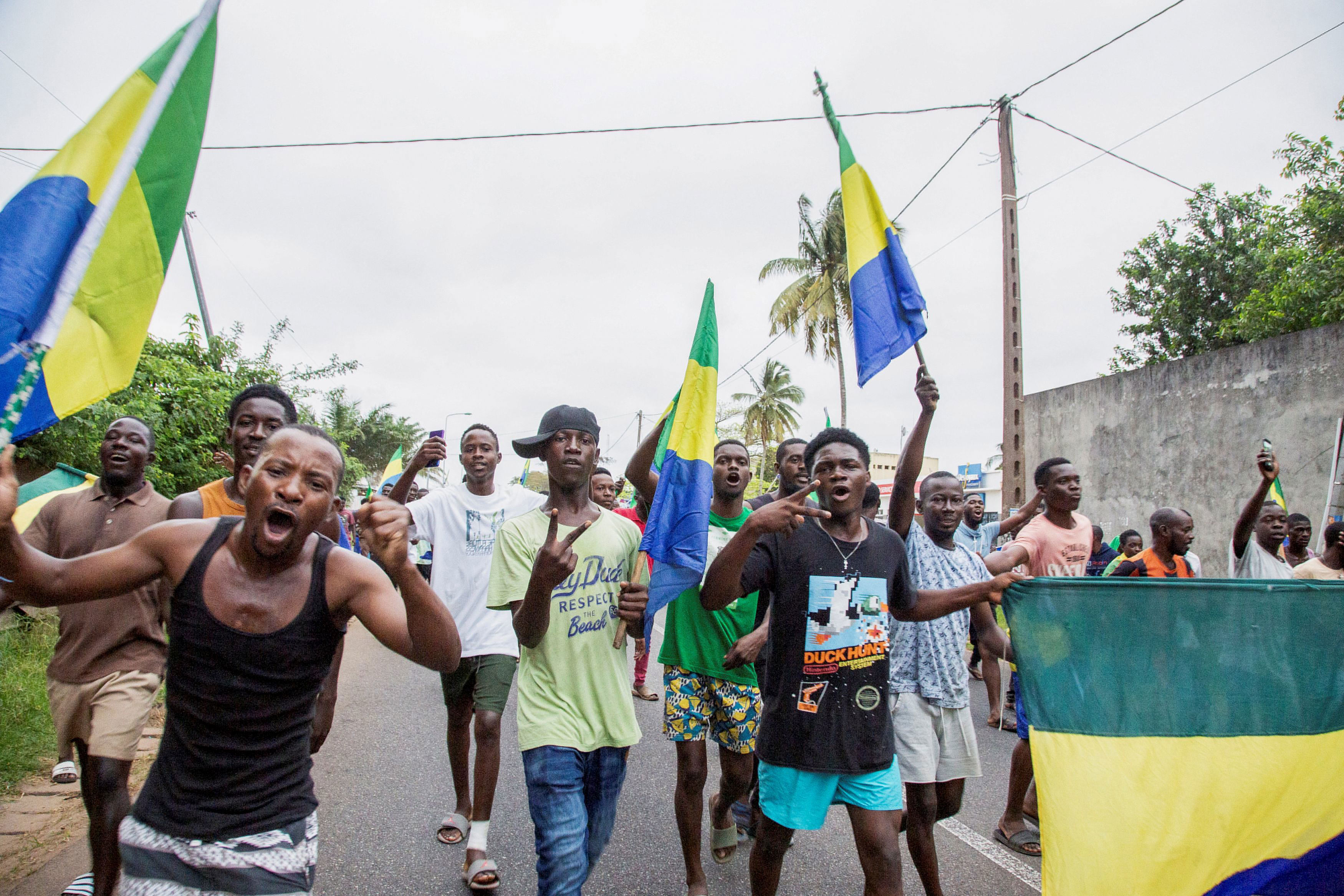Military Uprising Shatters Gabon’s Dynastic Rule: Overthrowing a Half-Century Political Dynasty

Military Uprising Shatters Gabon’s Dynastic Rule: Overthrowing a Half-Century Political Dynasty
In a startling turn of events that has sent shockwaves across the Central African nation of Gabon, a military coup has abruptly terminated the decades-long reign of a powerful political dynasty. The coup unfolded on Wednesday, as the president – whose family had maintained an iron grip on power for more than fifty years – was forcibly removed from office shortly after being declared the winner of a fiercely contested election.
The ousted leader, Ali Bongo Ondimba, colloquially known as Ali Bongo, had been at the helm of Gabon’s governance for nearly 14 years. However, his tenure was marred by allegations of election manipulation and rampant corruption, which cast a long shadow over his rule in the resource-rich yet economically challenged nation. The abrupt coup brought both jubilation and uncertainty to the streets of the capital, where citizens celebrated the fall of a dynasty while embracing the uniformed soldiers responsible for the coup.

Despite the palpable air of jubilation, the situation remains uncertain and tense. Ali Bongo is reportedly under house arrest, and his son has been apprehended. The swift military action resulted in the closure of all international borders, effectively isolating Gabon from the outside world. Moreover, the country’s administrative apparatus appears to have ground to a halt, with the government seemingly incapacitated. The international community has been quick to voice its concern and condemnation of the coup, prompting several nations to advise their citizens in Gabon to remain indoors and stay safe.
A Coup Unfolds: The Mechanics Behind the Seizure of Power
The military’s audacious power move was set into motion on Wednesday, a mere moments after Gabon’s election authority proclaimed Ali Bongo as the victor in the recent election. Clad in military uniforms, a group of men commandeered national television to announce their seizure of control. Their proclamation reverberated with a series of drastic measures: the nullification of the election results, the sealing of all borders, and the dissolution of key government institutions, including both legislative chambers.
This coup marked the stunning end of a political dynasty that had exerted an iron grip over Gabon for more than fifty years. The Bongo family’s legacy had been deeply intertwined with the nation’s governance since the days of Omar Bongo, Ali’s father, who held the presidency for a staggering 42 years. This dynastic rule, while bringing stability in some quarters, had also raised allegations of nepotism, corruption, and political suppression.
A Legacy Under Siege: The Ali Bongo Era
Ali Bongo’s ascension to power in 2009 was initially met with a mix of anticipation and skepticism. He inherited a nation that was rich in oil reserves but plagued by poverty and inequality. Despite promising initial steps towards reform and modernization, his presidency gradually became clouded by allegations of electoral malpractice and embezzlement. Critics argue that the dynastic nature of his rule, reminiscent of a bygone era, hindered the democratic progress and economic advancement that many Gabonese citizens sought.
The allegations of electoral fraud and manipulation reached a boiling point during the most recent election, igniting protests and escalating tensions across the country. As accusations of impropriety mounted, a sense of disillusionment deepened among the population, triggering a climate ripe for the unexpected military intervention.
The Aftermath and the Uncertain Road Ahead
In the aftermath of the coup, Gabon finds itself at a crossroads. The jubilant scenes in the capital city of Libreville, where citizens poured onto the streets to celebrate the fall of a political dynasty, juxtapose with the uncertainty that hangs over the nation’s governance and future trajectory.
With Ali Bongo reportedly confined to his residence and his son in custody, the military junta now asserts control over the nation’s fate. The closure of borders has created an isolation that threatens to exacerbate the country’s economic struggles, as trade and international relations grind to a halt. The dissolution of key government bodies, including the parliament, raises questions about the immediate governance of the nation and the potential for democratic representation in the days to come.
Global Reactions and Concerns
The international community has responded swiftly to the coup, expressing varying degrees of concern and condemnation. Many world leaders have condemned the use of force to upend a democratic process, urging a peaceful resolution and the restoration of constitutional order. Regional bodies and neighboring countries have also joined the chorus of voices calling for restraint and a return to stability.
The uncertain situation in Gabon has also prompted some nations to take immediate action to ensure the safety of their citizens. Advisories cautioning against travel and urging citizens to remain indoors have been issued, reflecting the apprehension surrounding the security and stability of the nation in the wake of the coup.
Conclusion: A Turning Point for Gabon
The military coup that has shattered Gabon’s political dynasty marks a pivotal moment in the nation’s history. The end of the Bongo family’s decades-long rule signifies a departure from a deeply entrenched past, while also highlighting the fragility of democratic institutions in the face of power consolidation. The road ahead for Gabon remains uncertain, with both opportunities and challenges on the horizon. As the nation navigates uncharted waters, the world watches closely, hopeful for a peaceful resolution and a path toward stability, prosperity, and democratic governance.






